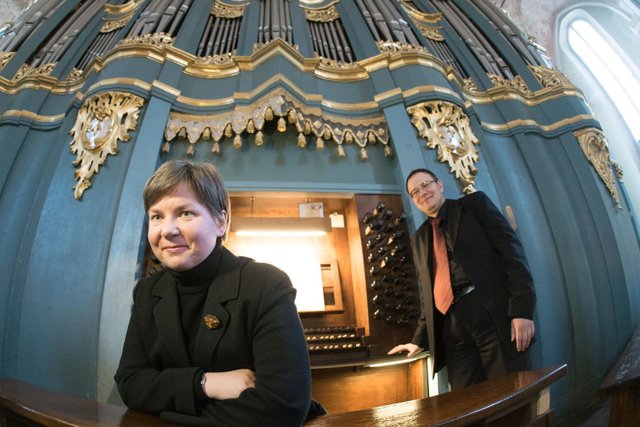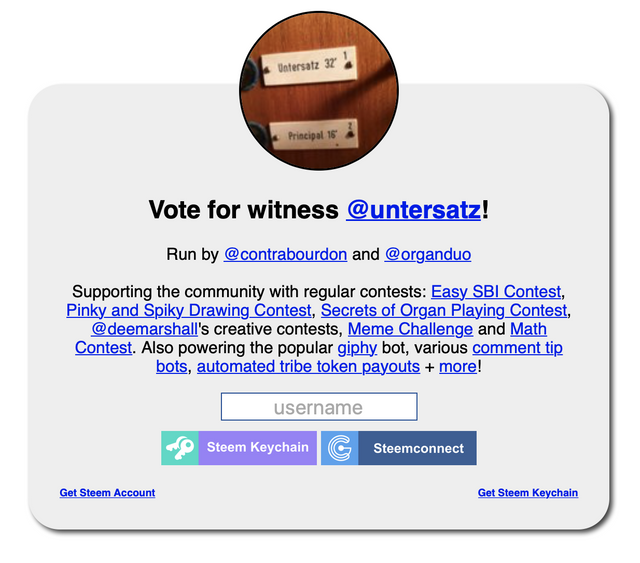SOPP524: I can still play but things feel different. I have reduced feeling in my fingers.
Vidas: Hi, guys, this is Vidas.
Ausra: And Ausra
V: Let’s start episode 524, of Secrets of Organ Playing Podcast. This question was sent by Mark. And he writes:
Hello I am 63 years old and have had a stroke on my left side. I fell and banged my head and had a further brain injury. I can still play but things feel different. I have reduced feeling in my fingers. I am trying to retrain myself. My muscle memory is just not there. My sight reading is much harder. I have a Rodgers organ at home so I have no trouble practicing. I sometimes feel like I am beating a dead horse. I have Hauptwerk and can play a nice Father Willis organ with it. Any suggestions for something I could do?
V: I wrote him a short answer:
Thanks Mark! Look forward to our answer on the podcast.
In short—don't overextend yourself and enjoy every moment of your practice, even if it seems slow.
V: What can you add, Ausra?
A: Well that’s a sort of a very difficult issue to discuss because I’m not a medical doctor but I think our brain is remarkable in that way that it’s very flexible and it tends to recover.
V: Mmm-mmm.
A: Even after such a serious illness as a stroke. So I guess you just have to take things easy and take a slow steps, not rush yourself. And I think eventually you will regain your abilities that you had before the stroke. Maybe not one-hundred percent but still I think it will become easier and better with each day. I think the worse thing in the situation like this what you could do is to do nothing.
V: Or to push yourself too hard.
A: Yes! That’s two extremes that you should avoid—doing nothing and to doing maximum out of yourself. I think you need to be somewhere in the middle. But anyway I think that in a rehabilitation process the physical activity is crucial. You will not recover without it. So I think also in addition to practicing organ, you need to do your physical therapy as well.
V: Mmm-hmm. All kinds of exercises.
A: Yes but of course you need to consult your doctor.
V: Yeah. We don’t know exactly what works for you.
A: But I guess you have to find the right balance for yourself in your life, how much can you do and what you need to avoid.
V: You know, people who have suffered a stroke or a heart attack, for example, those severe life threatening situations, and if they recovered like Mark, for example, they need to take life not so seriously any more. Don’t you think? Maybe let themselves enjoy a little.
A: I guess it’s easier to say than to do.
V: Why? After this experiment, experience, right?
A: I guess nobody of us knows what is waiting of us. So I guess we just have to receive every day as a gift...
V: Mmm-hmm.
A: and enjoy it, and live it.
V: Yes. It would be a mistake to try to fight the situation and say ‘okay, I will push myself even more, and my muscle memory will return faster, and my sight-reading will become much better really fast, next week’, for example. That would be a mistake, I think.
A: I think enjoying the moment…
V: The moment, yes.
A: is most important thing and the further we live, the more obstacles we get in our may, the better we understand this crucial thing, that we need to really enjoy the moment.
V: He sometimes feels like he is beating a dead horse. It’s an expression saying that he doesn’t feel any progress probably.
A: Well, but even if he only trying to do it is already a progress. Because think about all those people after stroke who either die…
V: Mmm-hmm.
A: or they just become…
V: Inactive.
A: inactive at all, and they stay on their bed for many, many years.
V: Mmm-hmm.
A: I know people like that in my relations, my relatives.
V: Mmm-hmm.
A: We have a women who is now probably seven years lying in bed. So I guess if you can move after [a] stroke and do something, it’s still very, very good. So you don’t need to rush progress and I think you will get stronger and better with each day.
V: You’re not a physician. You’re not a doctor, but do you think that walking would not hurt him? Talking walks, you know.
A: I think in general, walking is the most beneficial exercise for people who have trouble with their physical health.
V: Unless they have knee problems, hip problems…
A; Of course, but in general…
V: Those mechanical.
A: I think for people who have heart conditions and other problems, I think walking is very beneficial because you can, you regulate the tempo of your walking. You don’t need to rush. You may walk slowly and maybe with time to increase the speed of your steps.
V: And the distance too.
A: And distance too. And now we have all these Fitbit sort of…
V: Smartwatches.
A: smartwatches, and you can see what your pulse is and how it reacts to the tempo you are taking. So you can regulate it much, much easier, than in any other physical activities. So I guess the walking is the most harmless exercise, as least I understand it.
V: Will we go for a walk today?
A: Yes, I guess.
V: After this recording.
A: True. But of course if you have trouble walking, maybe swimming might be useful too, or some exercises in the swimming pool. For some people especially if they have leg joint problems...
V: Mmm-hmm.
A: the water smooths the damage to the joints. But you can still exercise.
V: Does reading help?
A: What do you think about that?
V: Well, you are the smart one here!
A: (Laughs). Well I think that walking or swimming helps more in such a case.
V: Than brain activity?
A: Of course you have to combine both things but…
V: So organ playing is also a combination of mental and physical activity too.
A: But of course you need to take things slowly and easy and not to overwhelm yourself with either physical or mental exercise, especially after such a difficult events...
V: Mmm-hmm.
A: and serious ones.
V: Always remember that practice is privilege, like our professor Pamela Ruiter-Feenstra used to say.
A: But I guess playing organ is a good idea for people like this because it really works on your coordination and on your brain and on your muscles. On your motor motions.
V: Yes. So please guys, send us more of your questions. We love helping you grow. And remember, when you practice…
A: Miracles happen!

Check out my Secrets of Organ Playing books:
https://amazon.com/author/vidaspinkevicius

To listen to the audio version of this article click on the play image.

Brought to you by @tts. If you find it useful please consider upvoting this reply.